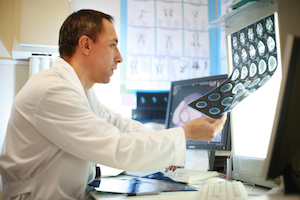A Florida Supreme Court Justice issued a strong argument for the use of eyewitness testimony expert witnesses in the state’s criminal system – supporting the growing field of social and behavioral science that has called to question the accuracy of eyewitness identification. Justice Barbara Pariente issued her comments imploring the use of eyewitness experts as a concurring opinion in the court’s recent decision to reject the appeal of a Death Row inmate, opening the door for supporters of the issue to push for expanded use of behavioral science studies in Florida courtrooms.
Florida Supreme Court Justice Calls for Eyewitness Expert Witnesses
Justice Pariente saw the opportunity to make her opinion on the use of behavioral science experts known when Charles Peterson filed an appeal to his Death Row conviction on the grounds that his trial lawyer’s failure to use an eyewitness identification expert constituted ineffective assistance of counsel. Although Pariente joined the unanimous ruling dismissing Mr. Peterson’s appeal, she, joined by Justice Peggy Quince, wrote a strong concurring opinion that championed the use of such experts in future trials. Her 8-page opinion noted that the outcome of Peterson’s appeal should not lead courts to conclude that the use of eyewitness identification experts is inadmissible, but instead encouraged judges to welcome such testimony to help juries decide on the reliability of eyewitness identifications.
Currently, Florida courts rely on a 31-year-old standard for eyewitness experts which rejects their use, arguing, “a jury is fully capable of assessing a witness’ ability to perceive and remember…without the aid of expert testimony.” Justice Pariente disagreed, pointing out that advances in social science have identified a number of factors that can result in misidentification and misremembering by eyewitnesses, and jurors are unable to tell when a witness is mistaken. Pariente wrote, “As the burgeoning body of scientific research indicates and courts across the country increasingly recognize, expert witness testimony on the reliability of eyewitness identifications can be a “powerful tool in helping the criminal justice system achieve its goal of convicting the guilty while acquitting the innocent.”
Justice Pariente Not Alone in Legal Community
As she noted in her opinion, Justice Pariente is not alone in welcoming the use of eyewitness expert testimony to help judges and juries analyze eyewitness identification. As blogged about here, Pennsylvania recently welcomed the use of eyewitness experts, joining courts in New Jersey, Utah, Oregon, and Connecticut. Justice Pariente pointed to Connecticut’s stance on the matter, suggesting that Florida “adopt the rationale of the Supreme Court of Connecticut … and conclude that this Court’s precedent, which suggests that factors affecting eyewitness testimony are within the common experience of jurors, is ‘out of step with the widespread judicial recognition that eyewitness identifications are potentially unreliable in a variety of ways unknown to the average juror.’”
Justice Pariente also pointed to work on the issue submitted by the Innocence Project, a nationwide organization that seeks to combat wrongful convictions in part by informing jurors about the common errors that plague eyewitness identification. Pariente noted research by the Innocence Project which found that 75{d61575bddc780c1d4ab39ab904bf25755f3b8d1434703a303cf443ba00f43fa4} of wrongful convictions later exonerated by DNA were the result of eyewitness misidentification – evidence that not only are eyewitnesses frequently unreliable, but that jurors are not able to identify when misidentification has occurred.
Although Justice Pariente’s analysis represents a progressive use of eyewitness experts that is supported by a growing number of behavioral science studies, the legal community has not widely embraced the change. Judges across the country still believe in the ability of jurors and attorneys to ferret out unreliable testimony, and are hesitant to open the courtroom doors to social science experts like those who offer analysis of eyewitness accounts. Because Justice Pariente’s argument was unrelated to the outcome of the case in which she wrote it, Florida judges are not compelled to welcome eyewitness expert testimony, however, Pariente’s words are encouraging to advocates of behavioral science experts and may prove significant should the Florida Supreme Court have the opportunity to set a new standard in the near future.













